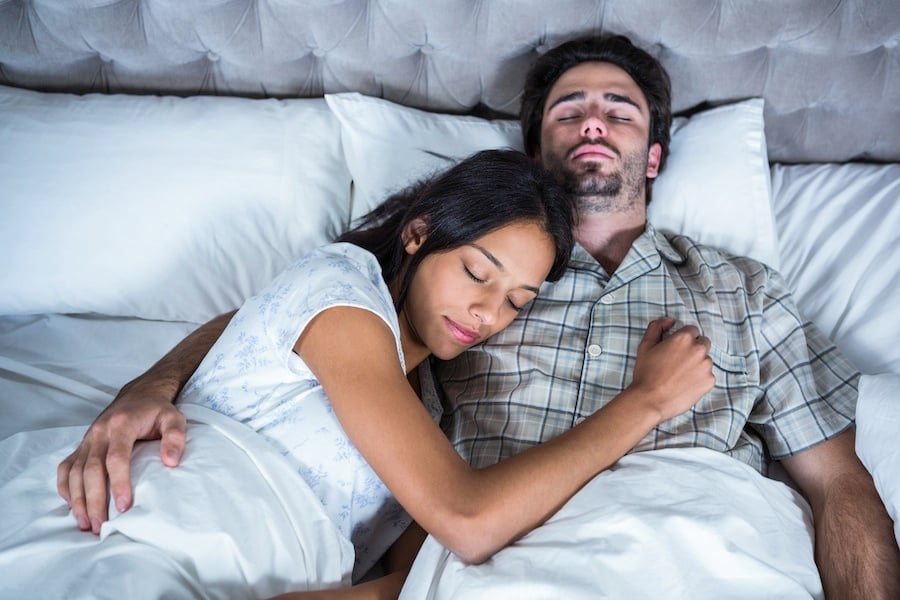Sleep is an essential part of our daily routine that is crucial for maintaining good health and overall well-being. However, the way men and women experience sleep can differ due to various biological, physiological, and lifestyle factors. In this blog post, we will explore the differences between sleep in men and women, shedding light on how gender influences our sleep patterns.
1. Sleep Duration
On average, women tend to sleep slightly longer than men. According to studies, women often require around 20 minutes more sleep than men each night to feel fully rested. This might be attributed to the fact that women tend to multitask more and engage in mentally and emotionally demanding activities during the day.
2. Sleep Architecture
While both men and women go through the same stages of sleep, the distribution of these stages can vary. Men tend to have a higher percentage of deep sleep and a lower percentage of REM sleep. Deep sleep is essential for physical restoration, while REM sleep is crucial for cognitive and emotional functions. Women, on the other hand, have more REM sleep, which could contribute to their enhanced emotional processing and memory consolidation abilities.
3. Hormonal Influences
Fluctuating hormonal levels can significantly impact sleep patterns in both men and women. For women, hormonal changes that occur during the menstrual cycle, pregnancy, and menopause can lead to disruptions in sleep. Hormones like estrogen and progesterone affect sleep architecture and can cause symptoms such as insomnia or daytime sleepiness. Men, on the other hand, may experience sleep disturbances due to age-related changes in testosterone levels.
4. Sleep Disorders
Certain sleep disorders affect men and women differently. For example, men are more prone to suffer from sleep apnea, a condition characterized by interrupted breathing during sleep. Women, on the other hand, are more likely to experience insomnia and restless leg syndrome. Additionally, women have a higher risk of developing sleep disorders such as sleep-related eating disorder and sleep paralysis.
5. Sleep Hygiene Practices
Men and women often have different sleep hygiene practices, which can impact the quality of their sleep. Women are generally more inclined to engage in relaxation techniques before bedtime, such as reading or taking a warm bath. On the other hand, men tend to fall asleep quicker but may be more prone to using electronic devices that emit blue light, which can interfere with the body’s natural sleep-wake cycle.

Credit: www.landofsleep.com

Credit: www.sleepdr.com
6. Sleep Disorders Awareness
There is a significant difference in awareness and diagnosis rates of sleep disorders in men and women. Sleep disorders in women often go undiagnosed, as many of the symptoms are attributed to other conditions, such as anxiety or depression. Men, on the other hand, may be more likely to seek medical attention for sleep disorders, leading to higher diagnosis rates.
7. Sleep and Mental Health
Sleep quality has been proven to play a significant role in mental health. Women have higher rates of insomnia and are more likely to experience sleep disturbances due to hormonal fluctuations. This can contribute to an increased risk of developing mood disorders such as depression and anxiety. Men, on the other hand, may experience sleep disturbances as a result of stress, which can also impact their mental well-being.
8. Napping Habits
Men and women also differ in their napping habits. While napping can provide a short burst of energy during the day, it can also disrupt nighttime sleep. Men tend to take shorter and more frequent naps, often using them as a way to recharge. Women, on the other hand, may take longer naps when they have the opportunity, which can sometimes make it harder to fall asleep at night.
Frequently Asked Questions For How Is Sleep Different For Men And Women
What Are The Differences In Sleep Between Men And Women?
Men and women have different sleep patterns due to various factors such as hormones, sleep disorders, and biological differences.
How Does Sleep Quality Differ For Men And Women?
Sleep quality can vary between genders due to factors like sleep duration, sleep disorders, and hormonal fluctuations.
Do Men And Women Require The Same Amount Of Sleep?
Both men and women require different sleep durations based on their individual needs, lifestyle, and age.
Are There Differences In Sleep Disorders Experienced By Men And Women?
Yes, sleep disorders can affect men and women differently, with variations in prevalence and symptoms.
Conclusion
In conclusion, sleep patterns vary between men and women due to a combination of biological, physiological, hormonal, and lifestyle factors. While women generally require slightly more sleep than men, the distribution of sleep stages and the prevalence of sleep disorders can differ between genders. Understanding these differences is vital for promoting healthy sleep habits and overall well-being for both men and women.
Leave a Reply